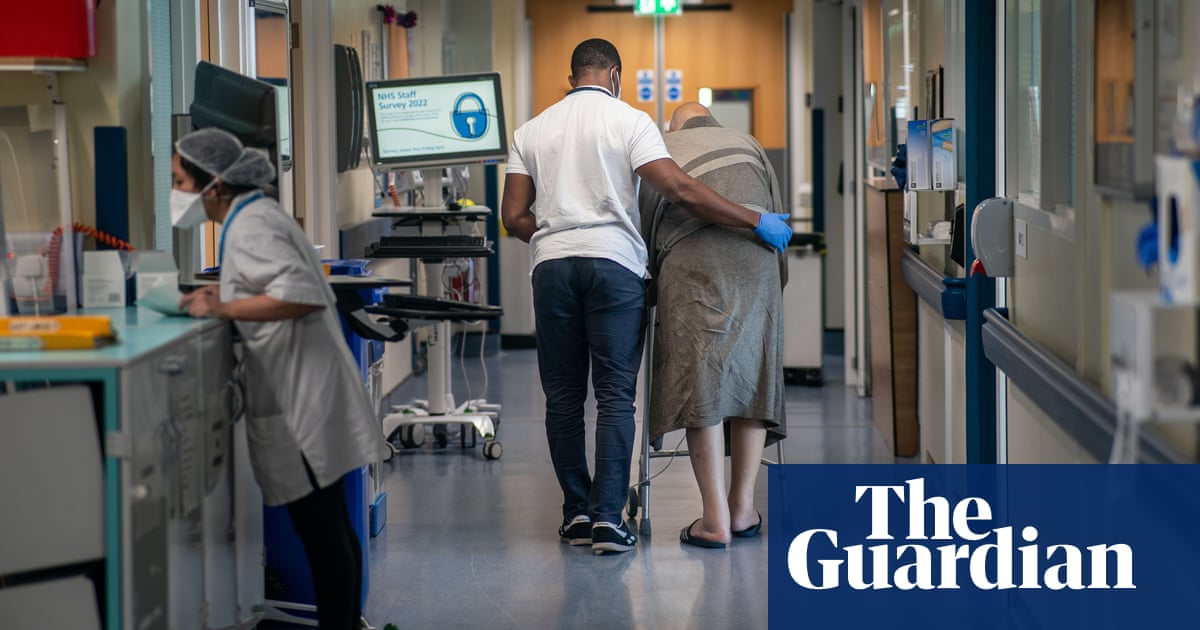Britain’s “Medieval” Levels of Health Inequality Are Having a “Devastating” Effect on the NHS
As the clock struck midnight in a dimly lit hospital corridor, a young mother cradled her six-year-old son, visibly distressed as he clutched his swollen, inflamed leg. A&E was buzzing with urgency, yet the boy looked out of place among the myriad of adults on gurneys—each one bearing the weight of untreated illnesses that narratives rarely capture. In districts where poverty reigns, conditions reminiscent of “Dickensian” England are becoming alarmingly common, underscoring a larger crisis hurting Britain’s National Health Service (NHS).
Untreated Illnesses and a Troubled NHS
Health experts warn that Britain’s growing health inequalities are pushing the NHS to the brink, costing the service an estimated £50 billion a year due to the fallout from deprivation. The NHS is now grappling with levels of untreated illness that echo the Middle Ages, with reports of patients attending emergency rooms with advanced diseases that should have been detected early.
“We are seeing patients with cancerous lumps bursting through their skin,” recounted a senior NHS physician from a Northern hospital who spoke under the condition of anonymity. “What’s disturbing is that these cases are avoidable, yet they’re increasingly becoming the norm.” This alarming trend encapsulates the essence of a healthcare system buckling under the weight of social and economic neglect.
The Rising Tide of Child Poverty
The burden on hospitals, particularly in deprived neighborhoods, stems from rising child poverty rates, pushing many vulnerable families into dire circumstances. Dr. Sarah Whittaker, an epidemiologist affiliated with a leading health research institute, stated, “Child poverty is not just a statistic; it’s a harbinger of future health crises. When children are impoverished, they are more likely to face chronic health problems, which, in turn, strain our healthcare systems.”
- Emergency admissions are nearly twice as high in impoverished demographics.
- Rising rates of “Dickensian” diseases, such as scabies and rickets, are indicators of a public health system unraveling.
- About £29 billion of NHS expenditures are now directly linked to poverty-related health complications.
Last week, the Royal College of Physicians published a troubling report estimating that about 30,000 deaths annually are linked to air pollution—primarily affecting Britain’s poorest communities. Dr. Martin Alderstone, a health policy analyst, emphasized: “The socio-economic factors that contribute to poor health are all interconnected. We are witnessing a vicious cycle where poverty correlates with health inequality.”
Government Responses and Fiscal Realities
Faced with these rampant health disparities, the UK government has unveiled plans to invest significantly in the NHS, announcing a real-terms increase of £29 billion. However, Wesley Streeting, the Health Secretary, has been candid about the challenges ahead. “While we’re taking steps to direct funding into poorer areas, the cuts in other essential services will ultimately exacerbate the very issues we’re trying to solve,” he stated at a press briefing last week.
Experts have expressed skepticism concerning Streeting’s ambitious ten-year health reform plan, which aims to shift the NHS’s focus from treatment to prevention. Saffron Cordery, deputy chief executive of NHS Providers, cautioned against superficial fixes: “To effectively combat health inequalities, we need a cross-governmental strategy that addresses the root causes of poverty—this is not solely an NHS issue.”
Long-Term Consequences of Health Inequity
As poverty grows, so does the strain on healthcare resources. A comprehensive report by the Joseph Rowntree Foundation (JRF) estimated the cost of health expenditures attributed to poverty could be as high as £50 billion today, significantly more than figures from earlier studies. Prof. Donald Hirsch noted, “The impact of poverty on health has been amplified due to escalating hardships like food insecurity, pushing more people towards emergency healthcare.”
Statistics unveil a grim reality. A study conducted by the Health Foundation reported that people in marginalized communities are diagnosed with major illnesses up to a decade earlier than those in affluent areas. Unchecked, these disparities are likely to widen further; life expectancy gaps have grown since 2013, showcasing a system struggling to bridge profound inequalities.
A Call to Action
Urgency reverberates through the corridors of the NHS as those at the forefront grapple with systems that often appear deeply broken. NHS trust leaders are calling for a holistic approach. Dr. Andy Knox from the Lancashire and South Cumbria Integrated Care Board remarked, “Without systemic change, we will continue to see rising health inequalities. We need a paradigm shift that prioritizes public health over reactive treatment.”
In a politically charged climate, the government’s spokesperson asserted, “We are committed to creating an environment that enables everyone to thrive, leveraging budgeting plans to enhance healthcare access for all Britons.” Yet skepticism abounds. Katie Schmuecker from the JRF warned, “Regardless of how many more appointments or resources we allocate, until we address the fundamental bedrock of poverty, the NHS will continue to suffer.”
As the NHS battles these deepening inequalities, it becomes clear that the solution lies not just within the walls of hospitals but requires a collective societal shift towards addressing the root causes of health disparities. In a nation that prides itself on universal healthcare, the stakes have never been higher. The quest for a healthier society must begin with the recognition of the complex interplay between poverty and health—before it’s too late.
Source: www.theguardian.com


